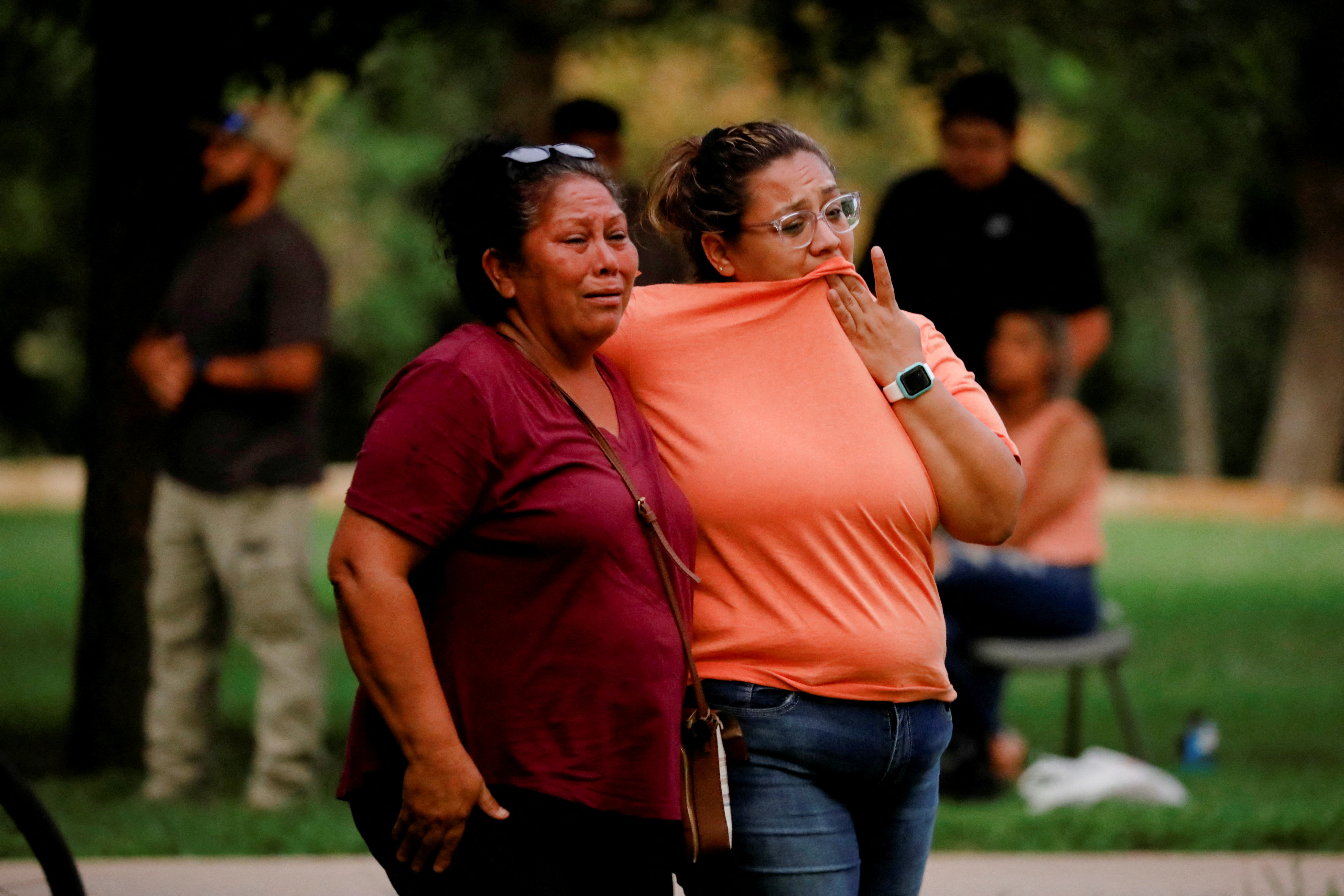Texas Assault By Threat - Assault is one of the most commonly committed crimes in the United States, and here in Texas, assault charges are on the rise.
In the first quarter of this year, from January to March, Fort Worth experienced a spike in violent crime. The homicide rate increased by 69 percent; sexual crimes increased by 24 percent; and aggravated assault increased by 15 percent.
Texas Assault By Threat

If you are charged with assault, it is important to understand your specific charge and how to fight it.
Not So Easy To Prove Assault By Threat In Texas
Many people see sexual assault as hitting and hurting someone. What they don't know is that you don't actually have to contact another person to be convicted of assault. Threatening someone alone can also be considered assault.
So let's look at Chapter 22 of the Texas Penal Code, which deals with various crimes, to find the legal definition of assault in Texas.
If you cause bodily harm to another, assault is a Class A misdemeanor, the most serious misdemeanor, and is punishable by up to one year in prison and a fine of up to $4,000.
Assault is a Class C misdemeanor punishable by a fine if you threaten another person with bodily harm or physically confront them in a provocative manner.
Battery By Omission
Assault can also be elevated to a third-degree misdemeanor — punishable by 2 to 10 years in prison and up to $10,000 in fines — if the victim is a government official or public official or if the offense involves domestic violence.
"Great Bodily Injury" means bodily injury involving a substantial risk of death or causing death of a limb or organ, severe permanent bodily injury, or long-term loss or impairment of function.
Assault is a second-degree felony punishable by 2 to 20 years in prison and a fine of up to $10,000. It can be elevated to a first-degree felony, punishable by life in prison, depending on the specific circumstances of the alleged crime -- such as domestic violence.

The most common defense to assault charges is that you acted in self-defense. For self-defense to be valid, you must show that there was a risk of harm, that you genuinely feared harm, that you did not provoke or hurt someone in the first place, and that the situation could not have been avoided.
Ransomware Attack Affects Computers In 22 Towns In Texas
Other common defenses to assault include that you were protecting another person or property, or that the alleged victim consented to the assault.
Regardless of your situation, it is best to contact an experienced Texas attorney if you are facing an assault charge. Your experienced attorney will listen to the facts of your case and determine the best defense strategy to reduce, dismiss, or dismiss your charges based on your unique situation.
After receiving his Juris Doctor from the University of Houston Law Center, JeffHampton began practicing law in Texas in 2005. Before becoming an attorney, he worked as a prosecutor for the Tarrant County District Attorney's Office, an experience he uses to anticipate and challenge arguments used against his clients. Throughout his career, he has helped countless Texans protect their rights and achieve the best possible outcome in their criminal cases. His skills have earned him recognition from National Trial Lawyers (Top 100 Trial Lawyers) and Avvo (Top Criminal Defense Lawyer, Top DUI & DWI Lawyer, 10/10 Excellent Rating) and he has been rated as a Lead Counsel. assault charges are common. Some might say it's because Texans like to fight, especially in places where alcohol flows freely. And while that may be true, the reality is that misdemeanor charges cover a wide variety of behaviors that don't involve swinging or throwing punches. For example, in Texas, you can be charged with a misdemeanor if you spit on someone or threatened to hurt them, but didn't actually do it.
In this article, the attorneys at Varghese Summersett provide an overview of the different types of crimes in Texas and answer some of your most pressing questions.
Foster Care Workers At Dallas Town Hall Forum Detail Pressures Of Helping Kids In Overwhelmed System
According to Section 22.01 of the Texas Penal Code, a person commits a crime in Texas if he:
A charge of causing bodily harm arises from a person intentionally, knowingly or negligently causing bodily harm to another person. The critical element is physical injury. In Texas, physical injury is defined as physical pain, illness, or impairment of a physical condition. Any pain, however slight, is sufficient to cause bodily harm. However, an alleged victim claiming mere inconvenience is not enough to file an ABI charge.
Causing bodily harm is a Class A felony in Texas and is punishable by up to one year in prison and a $4,000 fine.

Causing bodily harm against a relative (or household member) is the same as regular ABI, except that the alleged victim is a relative of the abuser. Have family/relatives in Texas:
Texas Misdemeanor Assault Charges
Causing bodily harm against a family member is a Class A felony punishable by up to one year in prison and a $4,000 fine if the defendant has no prior domestic violence charges. However, the charge can be treated as a misdemeanor if there is a previous conviction for domestic violence or if a family member has been strangled or the use of a weapon is involved.
Contact assault occurs when someone intentionally or knowingly makes contact with another person that is reasonably offensive or provocative. Examples include spitting on someone or sucking on someone's breast. Although it may not cause physical harm, offensive physical contact can still be considered assault.
Assault by contact is a Class C felony punishable by a fine of up to $500. Pay with fines that can be as high as $500.
Assault occurs when someone intentionally or knowingly threatens a person with a verbal or non-verbal threat of bodily harm. Assault by Threat is a Class C felony in Texas and is punishable by a fine of up to $500. Although no jail time can be imposed, you can still get a conviction for assault.
Far Right Extremists Pose Rising Threat In North Texas Around Election, Fbi's Dallas Office Says
Class A Felony: A Class A misdemeanor is the most serious misdemeanor charge and carries a maximum penalty of up to one year in jail and a $4,000 fine. Assault is classified as a Class A misdemeanor if it involves bodily harm. It is also a Class A felony to threaten bodily harm against a certain subset of the population, such as the elderly.
Class B Felony: A Class B misdemeanor is punishable by up to 180 days in jail and a fine of up to $2,000. Although rare in Texas, a Class B misdemeanor is defined as an actor outside of the sport who threatens an athlete with bodily harm or causes abusive contact with a participant in the sport.
Class C Felony: A Class C felony is punishable by a fine of up to $500. Jail time is not an option. Class C assault involves threatening someone with bodily harm or making abusive contact with someone.

In addition to the above penalties, those charged with assault face additional consequences. For example, a person convicted of ABI-FM loses the right to carry a firearm after conviction.
Trump Glorifies Drivers Who Swarmed Biden Bus In Texas, As Others See Harassment And Felony Assault
Just because someone has been accused of a crime does not mean they are guilty. In the event of an attack, several defense mechanisms can be developed, including self-defense, defense of others, defense of property, duress, and necessity.
Hopefully not. While jail time is possible if you've been charged with anything other than a Class C felony, the goal would be to avoid jail time for a first offense. An experienced attorney will develop a strategy that will hopefully result in dismissal, probation, deferred adjudication, probation, or a diversion program.
In Texas, the law allows two people to fight each other. According to Section 22.06 of the Texas Penal Code, a person engages in a two-way fight if the contact did not cause or threaten to cause serious bodily injury, or if the alleged victim participated despite the risk due to his occupation.
Thus, if two people are in a fistfight that did not result in serious bodily injury, and if there was a reasonable agreement based on words or body language, mutual combative defense may be used. However, if serious bodily injury has occurred or if the fight is unprovoked, it is unlikely to be a two-sided fight.
Woman Who Falsely Accused Texas State Trooper Of Sexual Assault Could Face Charges
An assault charge can be a misdemeanor, depending on the type of person being assaulted or the manner in which the assault was committed. The crime includes causing injury to a child, an elderly person, a disabled person or a loved one, as well as to officials such as police officers or judges. In addition, you may also be charged with a felony or aggravated assault if serious bodily injury was intentionally caused or if a deadly weapon was used in the assault.
After you have been arrested for assault with bodily injury, the case will be forwarded to the local prosecutor's office for review by a criminal prosecutor. Generally, one of three things happens:
If the case is taken for prosecution, you will be formally charged with assault

Assault by contact texas, triple threat midland texas, assault by threat texas, assault texas, terroristic threat texas, texas law terroristic threat, threat by zero skateboards, assault charges in texas, texas threat softball, threat detected by sophos, texas triple threat, assault by contact texas penal code

0 Comments